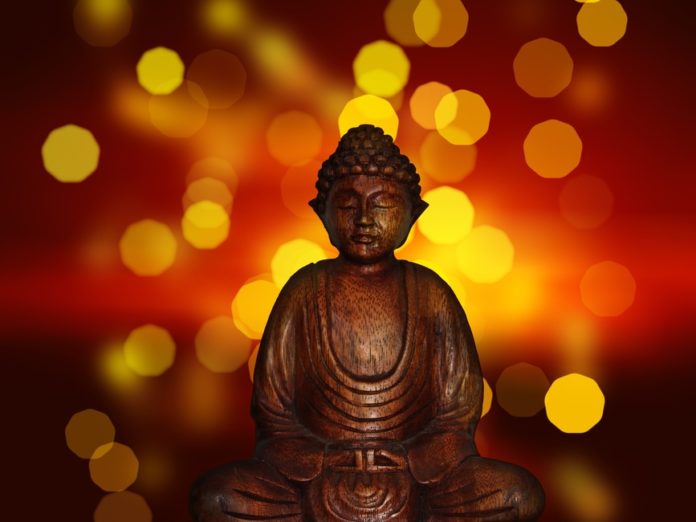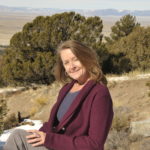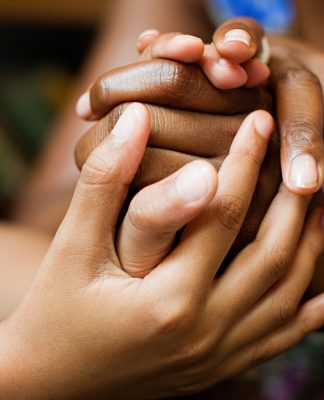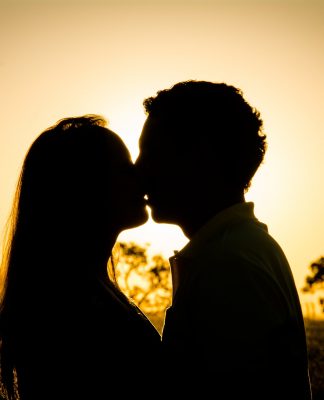You know that feeling when life is perfect, everything is going as planned and you have absolutely nothing to worry about?
Yeah, me neither.
Uncertainty is part of life. It’s that moment of not knowing, which is another way of describing open-mindedness.
I told a friend recently, “I keep thinking I’m going to wake up one day and feel like I’ve got it all together. I’ll be clear on my direction, wise, compassionate, disciplined, struggle-free. I certainly won’t fret or fear. I will have heroically conquered all my demons, while helping reduce suffering in the world and single-handedly making a major contribution to world peace as an extra side benefit.”
“Give it up, sweetheart,” he said.
Instead, I often feel lost, confused, like I’m wandering through a desert on a moonless night, unclear about what direction to take, randomly shuffling toward an unknown destination that probably includes a hidden bed of rattlesnakes. I cling to safety, ruminate on questions, crave answers. Often: like every day.
Working with uncertainty is the spiritual path.
According to Chogyam Trungpa Rinpoche, I’m right on target.
He wrote:
The spiritual journey is not a very easy one, absolutely not easy at all. It demands a lot from us. And we may not find what we want, absolutely not. Our questions may not be answered one by one. But something else is taking place. Maybe the question mark itself is beginning to rot, become disheveled, and turn into a period, full stop. Maybe that is happening. It’s a possibility. And that seems to be the process of the whole journey: dissolving the question mark into a full stop. The question mark becomes a statement or an exclamation, rather than a hollow line longing to be filled by answers.
Over the years I’ve learned to rather enjoy these blind excursions in the desert — it’s a bit reckless and wild. When you don’t have the destination in mind, you suddenly pay more attention to the journey and there’s the thrill of discovering the unknown. Details come into focus; you notice the exotic flowers and strange beasts.
Acceptance is the key to relaxing into uncertainty.
When you no longer struggle to control a specific outcome, your senses become more open; more tuned in to the surroundings. And here’s the irony: once you relax, your intuition kicks in, and you often get clues about which way to go.
Whether you call it beginner’s mind, or not knowing, or relaxing into uncertainty, the quality of mind that arises when you let go of the struggle to control outcomes is the quality of mind that doesn’t need to control outcomes because it’s content to enjoy the journey. When you access a state of alert relaxation and apply it to your life circumstances, then you don’t need to know where you are going. Then the destination becomes less of a focus, because you suddenly realize that wonderful surprises can occur at any point along the way.
Without uncertainty, how would we ever be happily surprised?
Years ago on my first back-country ski tour, my then-boyfriend and I got lost just as the sun was setting. We realized we were going around in circles and could not find the trail that led back to our car. We had no emergency supplies with us, and I was a newbie, so had zero back-country experience. It was snowing. We were cold, tired and hungry. I panicked. Let me tell you, when panic sets in like that, it is nearly impossible to calm your mind. And a calm mind is exactly what you need to get you out of that situation.
If you find yourself in a situation that has evolved to a point where you lose your way, calm yourself, think back to the last time you knew, and backtrack to see where you strayed.
Observe the Signs.
Sometimes the path gets unclear and you lose your way. At that point you practice awareness for a while before the path reveals itself again. Doors shut. Sometimes there are delays before the next one opens. On that infamous ski-trip, we back-tracked to the last turn we recognized, and luckily, we eventually ran into another skier who showed us the way out before nightfall. Rather than rushing blindly forward and going around the circle again, we had to stop and pay close attention to the terrain.
Sometimes you just have to sit tight and wait for clarity to dawn. That said, it can be helpful to have a road map for when you lose your way – something to provide structure to your time in the bardo, that phase between one incarnation and the next.
Here are some tips for how to stay calm while you negotiate the passage.
- Breathe
Calm your nervous system and connect with your subtle body through a breath based practice: yoga, pranayama, or shamatha meditation are all excellent choices. - Practice Radical Awareness
Watch for signs in your environment. Listen to words and phrases that come your way, especially things that repeat themselves. Sometimes messages come from people – pay attention to how things resonate. Sometimes the biggest messages are casual comments that suddenly unlock big meaning. - Check In With Guides
Schedule an appointment with your therapist or coach. Go see your teacher. Call old and trusted friends to check in. - Be Patient Let the process unfold at its own pace. And, I am going to strongly suggest: GET OFF OF SOCIAL MEDIA for a period of time. I just returned from a trip to the wilderness areas of Utah and Colorado which allowed me to be totally offline for nearly 3 weeks. It was one of the best things I’ve done in years. It’s amazing how distorted our view of reality can be when we are surfing Facebook all day. Please, do yourself a favour and take a break. The world will go on without you.
- Be Gentle
It can feel hard to be a grown up and suddenly not know what comes next. It’s tempting to look around us and see others succeeding, doing wonderful things and apparently doing them without effort. (This is another reason to get off of social media – to stop comparing yourself to others.) Recognize that you have your own set of gifts and challenges, and that your life’s trajectory will not look like anyone else’s. Love and appreciate your own unique journey. - Take Care of Yourself
Long walks in nature, hot baths, swimming, bike rides, massage, green smoothies, acupuncture, long periods of shavasana. Read good books. Take time off from ALL technology. Tend to your body by giving it good food, exercise, pampering and rest.
Trust the Process.
The practice is to trust the process, be patient while things evolve and enjoy the scenery right where you are. There is great joy and relaxation in this phase of evolution, if you can trust.


 With over 25 years of experience as a wellness professional, I counsel and coach, teach yoga techniques, and help people develop a relationship to sitting meditation. I’ve founded yoga programs in numerous situations around the world, and advise clients on practices to incorporate successful programs into existing hospitality venues.
I began practicing Ashtanga yoga with Richard Freeman in 1992 and spent 10 years studying intensively and eventually teaching with him in Boulder, Colorado. After spending a year studying with Sri Pattabhi Jois in Mysore, South India, I was authorized to teach Ashtanga yoga. I currently offer individual counseling and coaching sessions that will take into account your current situation and where you want to be. The work includes traditional therapeutic techniques, but without the burden of dredging up historical details. Contemplative psychotherapy is a model that works in the moment, identifying the present circumstances and emotions in order to fully embody whatever change wants to take place. Only by staying fully present and embodied can we move cleanly (in other words, without baggage) from one experience to another.
With over 25 years of experience as a wellness professional, I counsel and coach, teach yoga techniques, and help people develop a relationship to sitting meditation. I’ve founded yoga programs in numerous situations around the world, and advise clients on practices to incorporate successful programs into existing hospitality venues.
I began practicing Ashtanga yoga with Richard Freeman in 1992 and spent 10 years studying intensively and eventually teaching with him in Boulder, Colorado. After spending a year studying with Sri Pattabhi Jois in Mysore, South India, I was authorized to teach Ashtanga yoga. I currently offer individual counseling and coaching sessions that will take into account your current situation and where you want to be. The work includes traditional therapeutic techniques, but without the burden of dredging up historical details. Contemplative psychotherapy is a model that works in the moment, identifying the present circumstances and emotions in order to fully embody whatever change wants to take place. Only by staying fully present and embodied can we move cleanly (in other words, without baggage) from one experience to another.




















